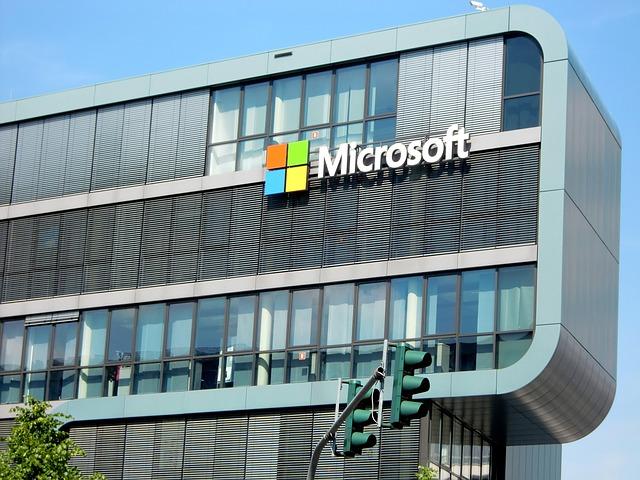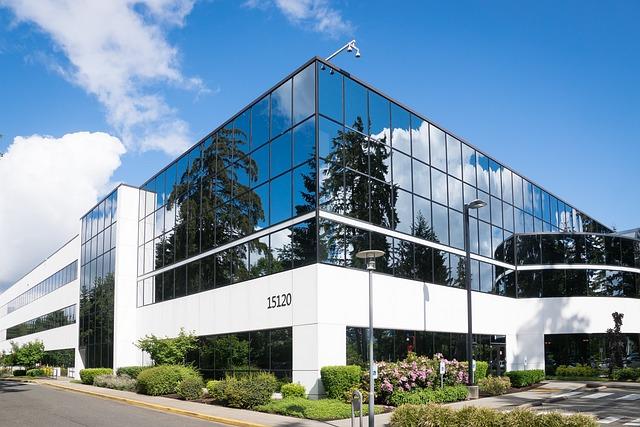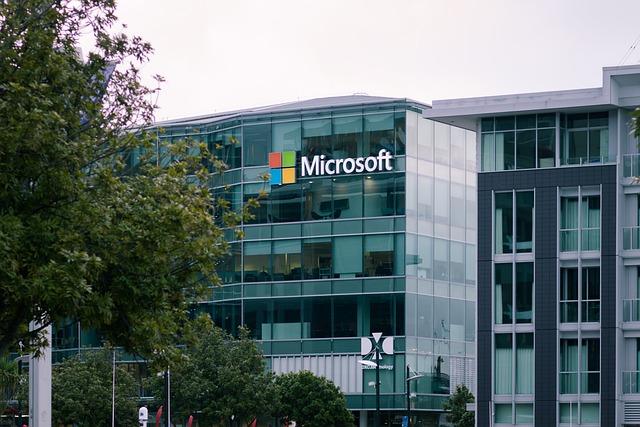Microsoft Plans $297 Million South Africa AI Investment: A New Era for Technology in Africa
In a move poised to significantly bolster the technological landscape of Africa, Microsoft has announced a substantial investment of $297 million in artificial intelligence initiatives in South Africa. This strategic commitment, reported by Bloomberg, signals the tech giant’s recognition of the continent’s burgeoning potential in the realm of AI and digital transformation. The investment is expected to create numerous job opportunities, enhance local skills in technology, and accelerate the development of AI solutions tailored to address the unique challenges faced by various sectors within the region. As Microsoft positions itself at the forefront of Africa‚Äôs digital revolution, this initiative could redefine the trajectory of technological advancement and innovation across the continent. This article delves into the implications of this investment, exploring the opportunities it presents for South Africa and the broader African economy.
Microsoft’s Strategic Commitment to AI Development in South Africa
Microsoft’s recent announcement of a notable $297 million investment in AI development in South Africa underscores the company’s dedication to fostering technological innovation on the continent. This strategic commitment is not merely a financial investment but a holistic approach aimed at addressing local challenges, enhancing skill development, and fostering an ecosystem geared towards technological entrepreneurship. Through partnerships with universities and local businesses, Microsoft seeks to cultivate a skilled workforce that is prepared to meet the growing demand for AI and machine learning solutions.
The investment will focus on several key areas, including:
- Infrastructure Development: Creating advanced data centers to support AI capabilities.
- Education and Training: Implementing programs aimed at upskilling local talent in AI technologies.
- Research Initiatives: Collaborating with academic institutions to drive AI research focused on local issues.
- Community Engagement: Supporting local startups and innovators to drive lasting growth.
Microsoft‚Äôs approach reflects a long-term vision that aligns with the South African government’s goals of economic growth and technological advancement. This collaborative effort could lead to transformative impacts on various sectors,including healthcare,agriculture,and education,thus setting a foundation for a technologically empowered future in South Africa.

Impacts of the Investment on Local Tech Ecosystem and Job creation
The $297 million investment by Microsoft in South Africa’s AI sector stands to significantly transform the local technology landscape. The injection of capital is expected to enhance the infrastructure required for cutting-edge AI development, thereby fueling local startups and fostering innovation. The establishment of state-of-the-art facilities and the collaboration with universities and research institutions will promote a robust technological ecosystem. This environment is likely to encourage the exchange of ideas and resources, leading to the emergence of new startups that can compete on a global scale.
In terms of job creation,this investment will have a profound impact on the local economy. The initiative is projected to create thousands of jobs,both directly and indirectly,across various sectors,including software development,data analysis,and machine learning. Key benefits include:
- Skill Development: Training programs aimed at enhancing the skill sets of local talents.
- Employment Opportunities: Increased demand for tech professionals in diverse roles.
- Entrepreneurial Growth: Support for local startups to innovate and thrive.
To illustrate the anticipated job creation effect, the following table outlines projected job types and numbers:
| Job Type | estimated Job Growth |
|---|---|
| Software Developers | 1,200 |
| Data Scientists | 800 |
| AI Researchers | 600 |
| Project Managers | 400 |
This dynamic shift is not only poised to enhance the region’s technological capacity but will also provide a springboard for economic growth, positioning South Africa as a significant player in the global AI market.

Enhancing Education and Skill Development Through AI Initiatives
The infusion of $297 million into South Africa’s AI landscape promises to revolutionize both education and skill development across the region. By leveraging advanced technologies, Microsoft aims to bridge the skills gap in various sectors, ensuring that the workforce is equipped with the capabilities needed to thrive in an increasingly digital world. This investment will support programs that focus on enhancing digital literacy, coding, and AI education, allowing students and professionals to engage with cutting-edge tools and methodologies.
Furthermore, this initiative prioritizes community engagement by establishing partnerships with local educational institutions, non-profits, and government organizations to create tailored curricula that reflect the unique needs of the South African job market. By facilitating access to online learning resources, scholarships, and mentorship opportunities, Microsoft is setting the stage for a more inclusive and skilled workforce. The initiative also emphasizes the meaning of equipping teachers with AI tools, enabling them to deliver personalized learning experiences that resonate with a diverse student body.

Opportunities for Collaboration with South African startups and Innovators
The significant investment by Microsoft into South Africa’s artificial intelligence landscape opens doors for proactive collaboration between tech giants and local innovators. This initiative can foster a robust ecosystem where startups engage with established firms, leading to groundbreaking solutions tailored for both local and global markets. Key opportunities for partnerships may include:
- Joint research Initiatives: Collaboration on AI research projects that leverage local knowledge and challenges.
- Incubator Programs: Microsoft could launch programs that provide resources, mentorship, and funding to South African startups.
- Skills Development: Creating training programs for local talent to bridge the skill gap in AI technology.
- Product Development: Co-developing AI products that suit the unique South African consumer base while also targeting international markets.
Additionally, these collaborations could benefit from structured frameworks that support innovation and entrepreneurship. A potential model for collaboration could be represented as follows:
| Collaboration Type | Description | Potential Outcomes |
|---|---|---|
| Funding Opportunities | Investment in startup projects focused on AI. | Accelerated product development and market entry. |
| Networking Events | Regular meet-ups between innovators and industry leaders. | Increased visibility and partnership potential. |
| Knowledge Exchange | Workshops and seminars led by Microsoft experts. | Enhanced capabilities and understanding of AI technologies. |

Evaluating Potential Challenges and Risks in the Implementation of AI Solutions
the ambitious $297 million investment by Microsoft in South Africa marks a significant move towards advancing AI technologies in the region. However, as with any major initiative, several potential challenges and risks warrant careful evaluation. Among these are data privacy concerns, which can arise from the accumulation and analysis of sensitive information. The lack of robust regulatory frameworks in some areas may exacerbate these issues, potentially leading to breaches that could damage user trust and invite legal repercussions. Stakeholders must prioritize establishing clear protocols and obvious practices to safeguard individual rights.
Additionally, infrastructure limitations pose another obstacle to the successful deployment of AI solutions. Many areas within South Africa may lack the necessary digital infrastructure to leverage AI capabilities fully. this includes reliable internet connectivity and the availability of skilled personnel trained in AI and data science. Addressing these gaps may require significant investment and collaboration between public and private sectors. furthermore, the ethical implications of AI deployment cannot be overlooked. Ensuring that AI systems are designed and implemented with fairness and accountability in mind is critical to prevent bias and discrimination in outcomes.

Future Outlook: What This Means for Africa’s Digital Landscape
the recent announcement from Microsoft regarding a substantial $297 million investment in artificial intelligence within South Africa signifies a pivotal shift in the continent’s digital narrative. This substantial financial commitment is poised to invigorate innovation, enhance local tech ecosystems, and boost job creation. By focusing on AI, Microsoft is not merely expanding its footprint but also catalyzing several key developments across the region:
- Skill Development: The investment will likely lead to initiatives aimed at upskilling the workforce, preparing a new generation to tackle challenges in the tech space.
- Startup Incubation: Enhanced funding and resources can foster startup ecosystems, enabling local entrepreneurs to push the boundaries of innovation.
- Infrastructure Improvements: Investments in AI infrastructure will lead to better connectivity and technology access, vital for rural and underserved areas.
As the digital landscape evolves, the implications of such investments extend beyond immediate economic benefits.Microsoft‚Äôs focus on South africa emphasizes the continent’s emerging status as a global tech hub.A concerted effort towards AI integration can reshape several sectors,including healthcare,agriculture,and education. the anticipated advancements could lead to:
| Sector | Potential Impact |
|---|---|
| Healthcare | Improved patient diagnostics and personalized medicine. |
| Agriculture | Enhanced crop yields through precision farming. |
| Education | Access to personalized learning experiences and resources. |
Ultimately, Microsoft’s investment positions South Africa as a beacon of opportunity within the technological realm, setting a precedent that other global players may follow. The ripple effects of this initiative could empower African nations to tackle social challenges through innovative digital solutions.

In Summary
Microsoft‚Äôs substantial $297 million investment in South Africa‚Äôs AI landscape marks a significant milestone not only for the company but also for the continent‚Äôs technological development. This strategic move underscores the growing recognition of Africa as a vital player in the global tech ecosystem and highlights the potential for AI to drive innovation and economic growth in the region. as Microsoft establishes partnerships with local enterprises and government bodies, the anticipated advancements in AI could lead to improved services across various sectors, from healthcare to finance, ultimately paving the way for a more digitally inclusive future. As this initiative unfolds, stakeholders will be keenly watching how this investment reshapes South Africa’s position in the global technology arena and its long-term implications for the African continent as a whole.







